The pleasant little mountain town of Bao Loc has yet to be overrun by vacation crowds and provides a far quieter alternative to its neighbor Da Lat.
BEST TIME TO VISIT BAO LOC LAM DONG
To enjoy trekking, kayaking and the other best activities Bao Loc has to offer – all of which take place in the great outdoors – the dry season between December and April is the ideal time to visit.
The ideal time to go “cloud hunting” is between April and June, when droves of photographers and painters flock to capture the thick clouds and fog enveloping mountaintops and valleys.
At a comfortable altitude of 900 meters above sea level, high temperatures in Bao Loc only reach 27.4 degrees Celsius while lows dip to 16.6.
HOW TO GET THERE BAO LOC LAM DONG
From Hanoi and Saigon, the best way to reach Da Lat is by air.
Vietnam Airlines and Vietjet Air have direct flights to Da Lat every day. Return tickets cost around VND1.1 million ($47) from HCMC and VND2.4 million ($103) from Hanoi.
The Lien Khuong International Airport is around 40 kilometers from the town. A shuttle bus or taxi can take visitors from the airport to the town.
An 8-hour sleeper coach to Da Lat from HCMC costs VND220,000 ($9.42) per person. Then it takes around two hours to get to Bao Loc via Highway 20.
There aren’t many regular buses operating between Bao Loc and Da Lat, but you can hire car services from hotels in Da Lat. Alternatively, you can take a taxi or shuttle as it’s only 1.5 hours away.
WHERE TO STAY IN BAO LOC LAM DONG
Unlike the tourism hub of Da Lat, there are not many high-end accommodations in Bao Loc, as this destination remains off the beaten track.
Some high-end resorts worth considering are The Eco Tropicana Garden and DoiDep Tea Resort, both surrounded by nature and offering rooms from VND1.5-2 million a night.
For budget tourists, try smaller hotels such as the Sen Villa Boutique, Minh Nhung Hotel and An Ngoc Linh Hotel, all of which generally offer prices below VND1 million.
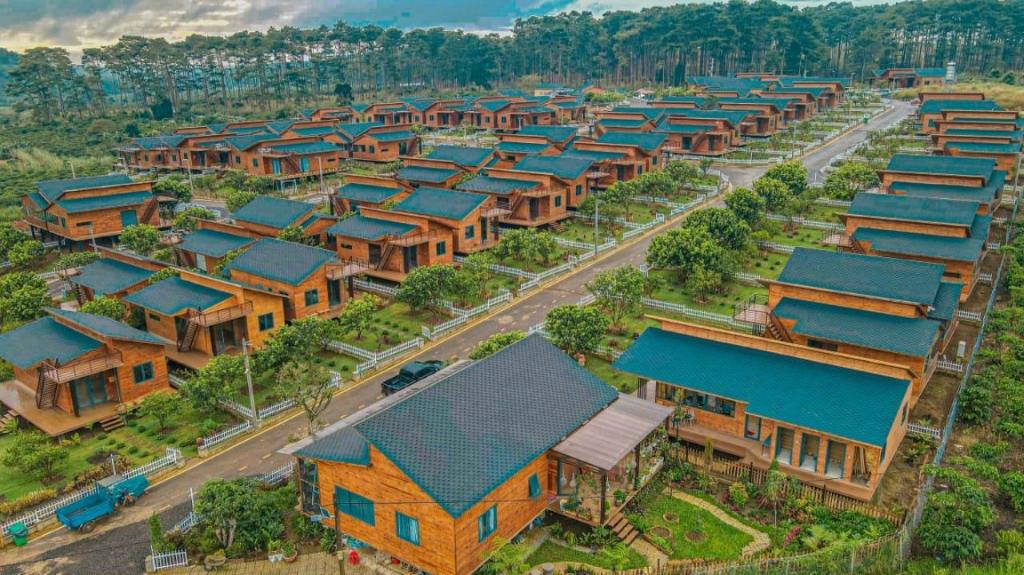

Homestays are also not a bad idea.
There are some village homestays near Bao Loc for tourists to enjoy local rural culture. Check out Tea Garden House and Wooden House Bao Loc, whose prices range from VND500,000 to VND1 million ($20.47-40.94) a night.
Lam Dong Province is famous for many of Vietnam’s most scenic waterfalls, and Bao Loc’s 90-meter Dambri Falls is the tallest around.
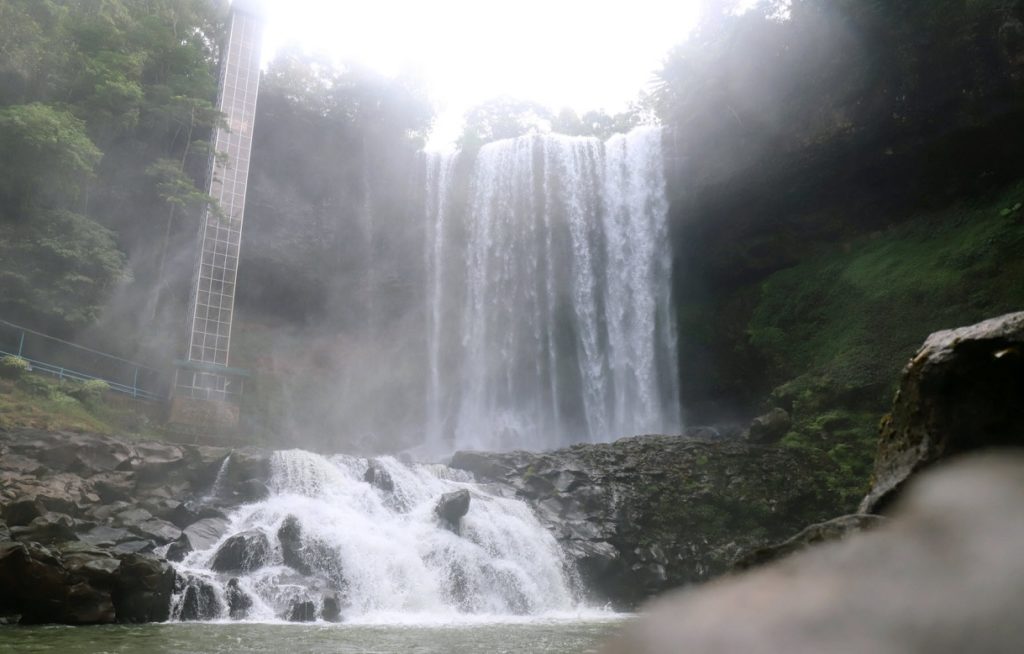
Surrounded by a seemlingly endless tropical forest with gargantuan trees and lush bushes, the waterfall is home to a tourist park with outdoor adventure activities, a restaurant, and an elevator beside the waterfall that provides stunning views while you descend from above the falls.
To summit Dambri, you can either hike 138 concrete stairs or take the elevator. And to return to the lowlands you can enjoy the thrill of a 1,650-meter-long alpine roller coaster.
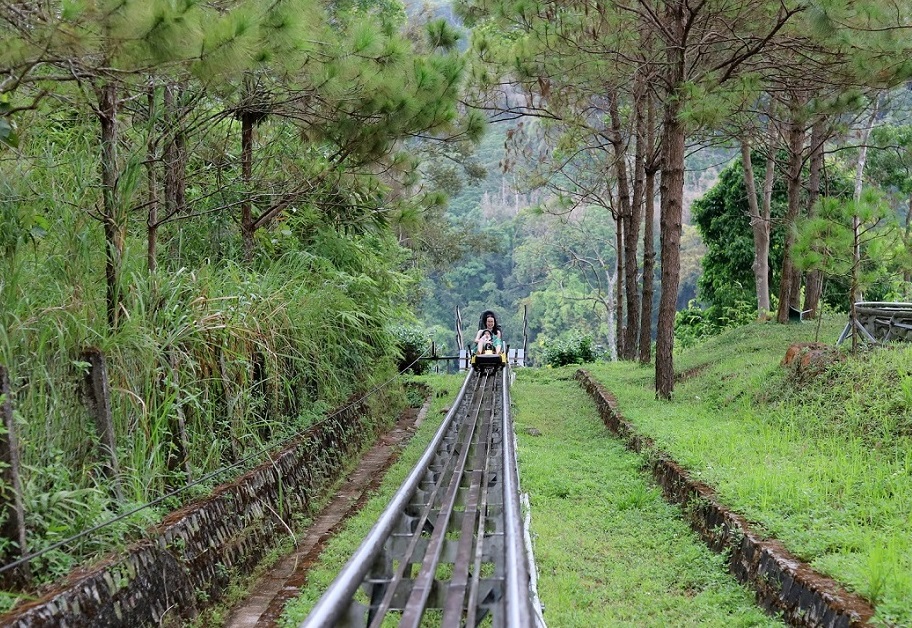
Dambri’s coaster is the longest in Southeast Asia and is also definitely a must-try. Admiring those views with the wind blowing through your hair is an experience second to none.
Local life
At the foot of Dambri Falls lies Chau Ma village where ethnic minority tribes have been living for generations. Visitors can join locals for a barrel of tube wine (ruou can), a libation unique to Vietnam’s Central Highlands. Villagers also put on gong dances and other unforgettable performances.
Another rare experience you won’t want to miss out on is staying overnight in a treehouse in the middle of the forest. That’s right: a real treehouse. These houses are made entirely of wood which are environmentally friendly. The houses are nestled into strong old trees near the edge of the waterfall.
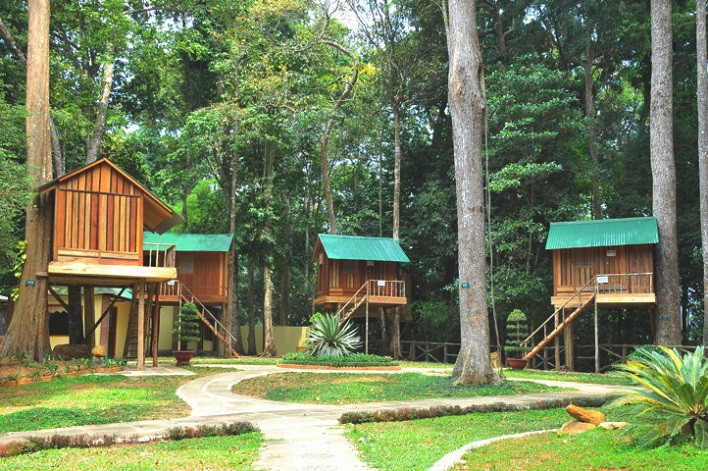
A night’s stay costs VND800,000 for a couple, including breakfast, coffee, and drinking water.
Pagoda among the white clouds
Spiritually minded Bao Loc visitors can travel 25km north of downtown to the top of Mount Dai Binh for visit at the beautiful Linh Quy Phap An Pagoda.
This gorgeous hilltop temple became famous after being featured in a music video by Vpop singer Son Tung MTP in 2016.
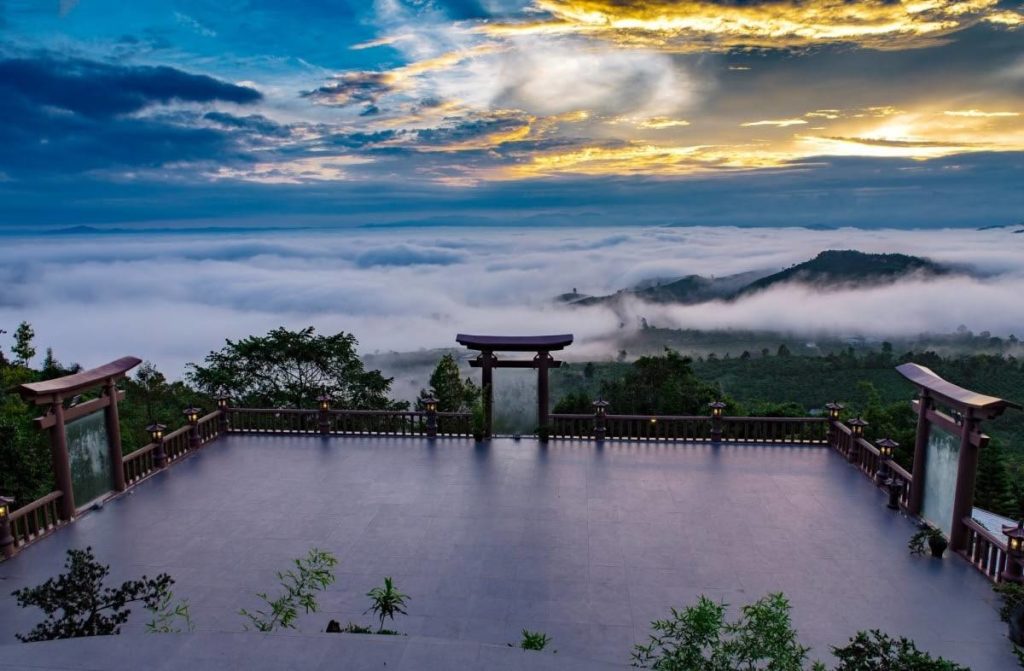
The pagoda’s design is a mix of traditional Vietnamese and Japanese architectures, with Japanese wooden gates erected to guard the holy site.
It also features a Japanese-style rock garden where monks gather for dharma talks and discussions on the Buddha’s teaching.
The pagoda consists of three major structures: a contemplation hall, a library and a sanctuary. Separated from busy residential areas, the atmosphere here is quiet and enveloped by green forests and tea gardens.
However, the road to the pagoda is narrow and steep. Some locals offer tourists motorbike rides to the site, but this is risky and dangerous.
The best way to get there is to climb a few hundred steps from a parking lot below the pagoda. To reach the parking lot, just walk about 100m up the slope leading to the pagoda and turn right.
Cloud hunting at Loc Thanh Pass at an altitude of nearly 1,000 meters is also not to be missed. Here you need an experienced veteran driver to transport you because the road is perpetually shrouded in thick fog and the steep sliding slopes are slicked with mud.
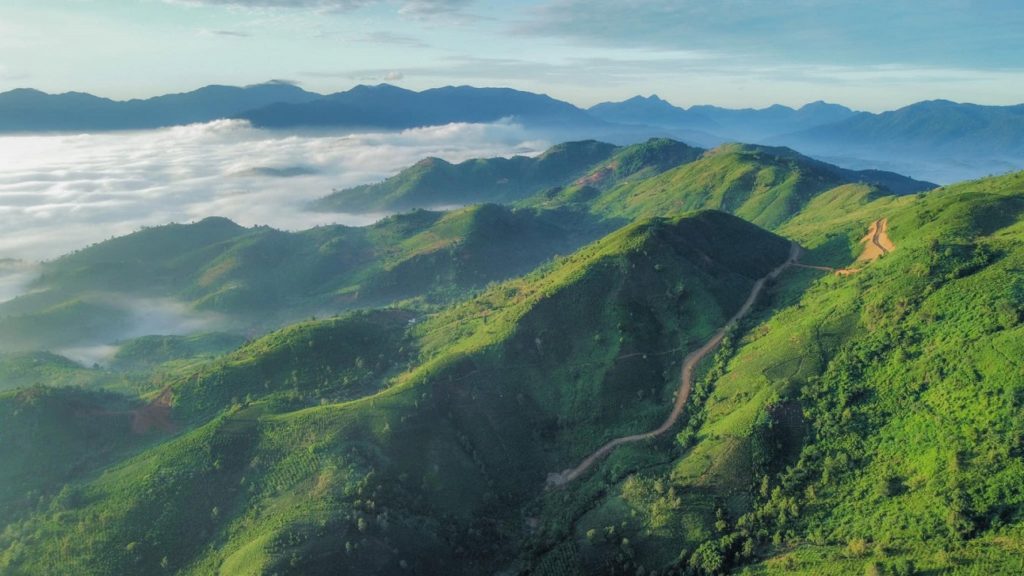
According to locals, between 3 a.m. and 6 a.m. is the best time to view the clouds atop Loc Thanh.
Roughing it
Camping at the Madagui eco-tourism area should also be part of your itinerary. Situated about 22 kilometers east of Cat Tien National Park, Madagui is surrounded by dense green jungles and is home to a cave system ideal for trekking and teambuilding.
The most popular activity here is to hike the cave system, which comprises four main caves, each dedicating to worshiping a different ancient god.
In addition, boat rides, ziplines, cycling, fishing and swimming are also available at Dambri.
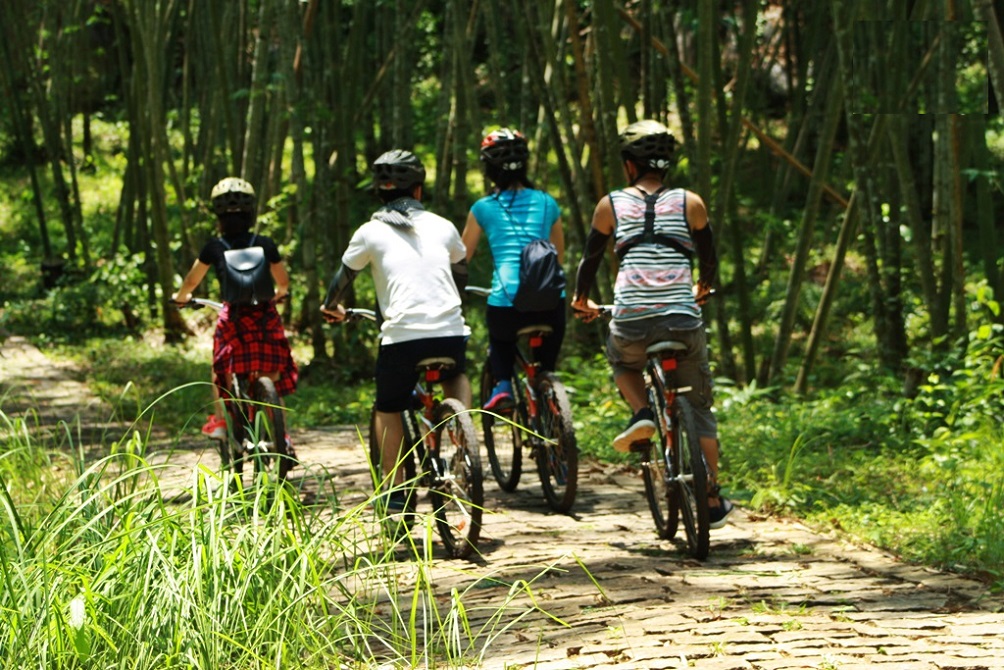

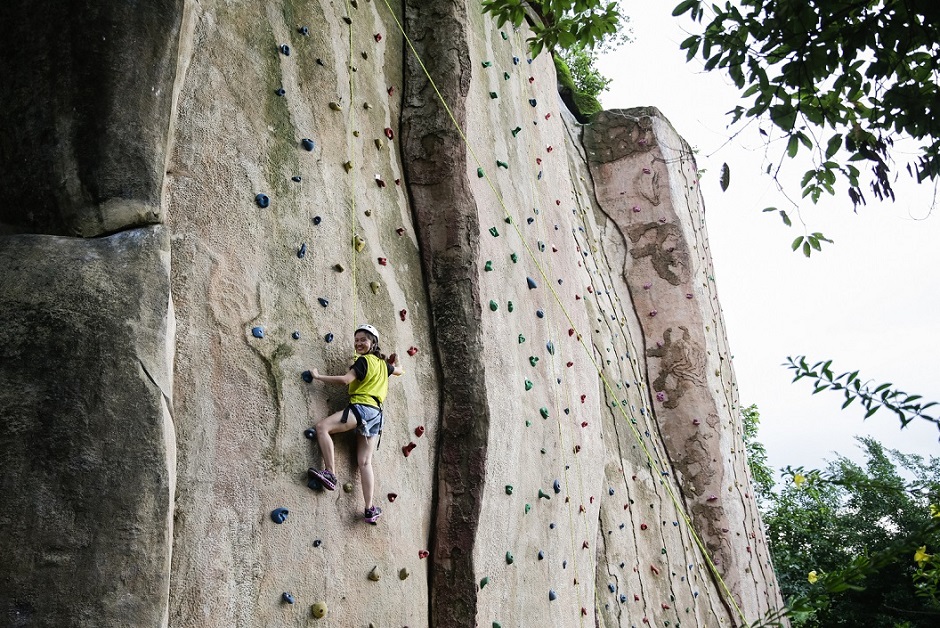
Entry tickets to the Dambri tourism park cost VND20,000 per person, while hotel room rates range from VND250,000 to 1.2 million a night.
Intrepid travelers can instead opt to rent a tent or dorm room for VND80,000-120,000 per person. But bring your bug spray!
Tea time
The Tam Chau tea plantation in Bao Loc has been overlooked by tourists since it opened in 2001.
Every day farmers gather at the tea factory around 7 a.m. and then walk into the hills to pick tea buds. Visitors can mingle for photos on the hilly slopes covered in tea plants and also learn about the tea growing, picking and making processes.
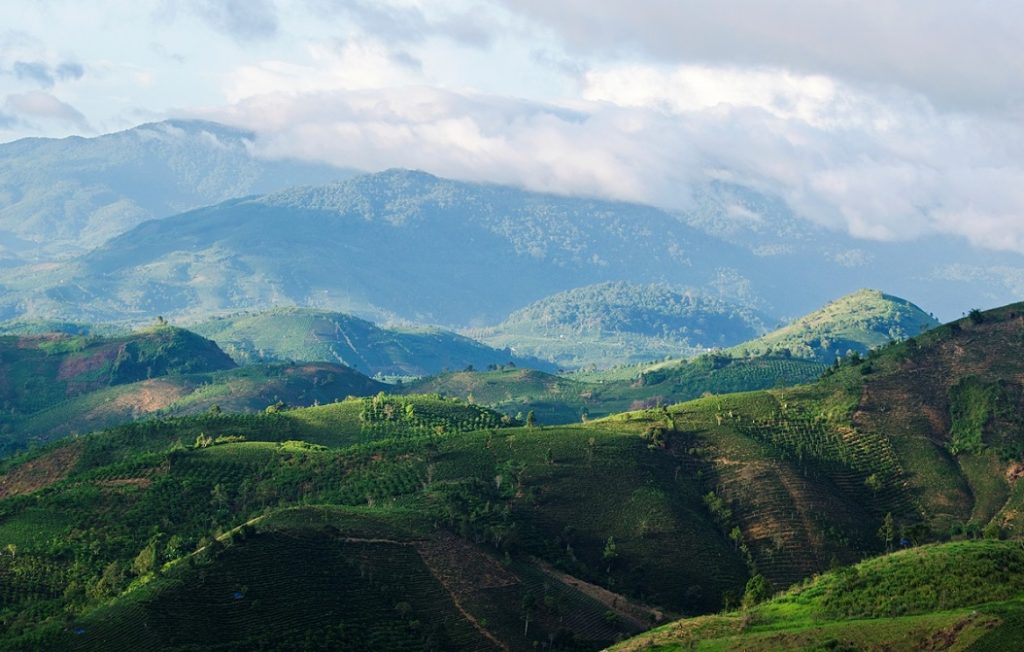
Bike and motorbike rental services allow visitors to explore the tea hills and factories to see how Vietnam’s famous tea is produced.
Located 120 kilometers from Da Lat, Tam Chau is not easily found by first-timers so you should hire a guide or ask directions from locals because the road is a challenging mix of red dirt and mud.
Old church
Another interesting Bao Loc site is the old Bao Loc Church, the town’s biggest worship area. Its large campus can accommodate 3,000 parishioners per service.
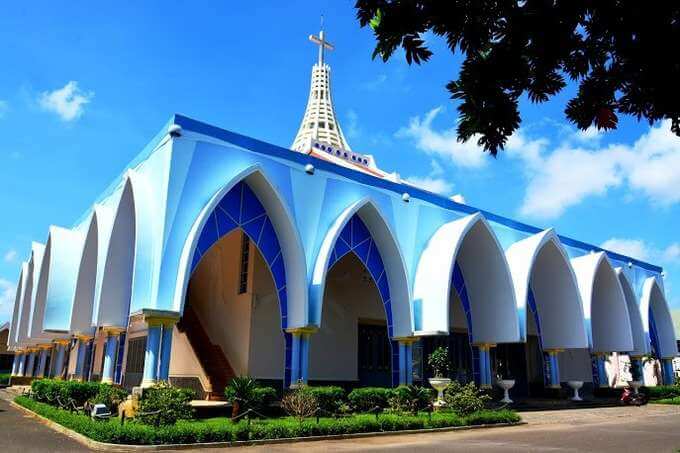
Work on the church started in 1994 and it officially opened in 1999. The church’s architecture is a blend of traditional Vietnamese and Western styles.
The church is supported by 12 pillars representing the 12 apostles of the Catholic Church.
WHAT TO EAT IN BAO LOC LAM DONG
The highlands town Bao Loc is also hailed as a ‘cuisine paradise’ in the Central Highlands.
The most popular dish here is pho kho, a dried noodle dish cooked Chinese style. A bowl of dry noodles consists of beef brisket, rare beef, and beef balls mixed with fried onions.
You can try the dish at 73 Nguyen Cong Tru Street in Bao Loc Town.
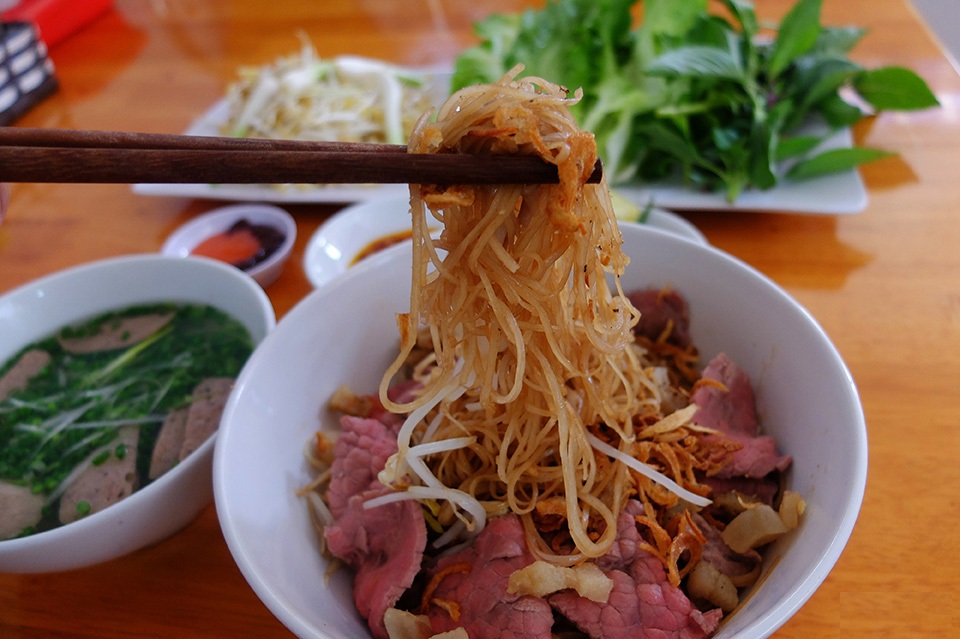
Bun bo (beef noodles) is a popular breakfast dish at most of restaurants in Bao Loc.
Unlike the version in Hue, the hometown of the dish, bun bo in Bao Loc is processed to suit the culinary taste of the local people. A bowl with all the toppings, which includes crab cakes, beef shank and beef brisket, costs between VND25,000-VND35,000. The dish is served with shredded cabbage and sweet-and-sour pickled onions.
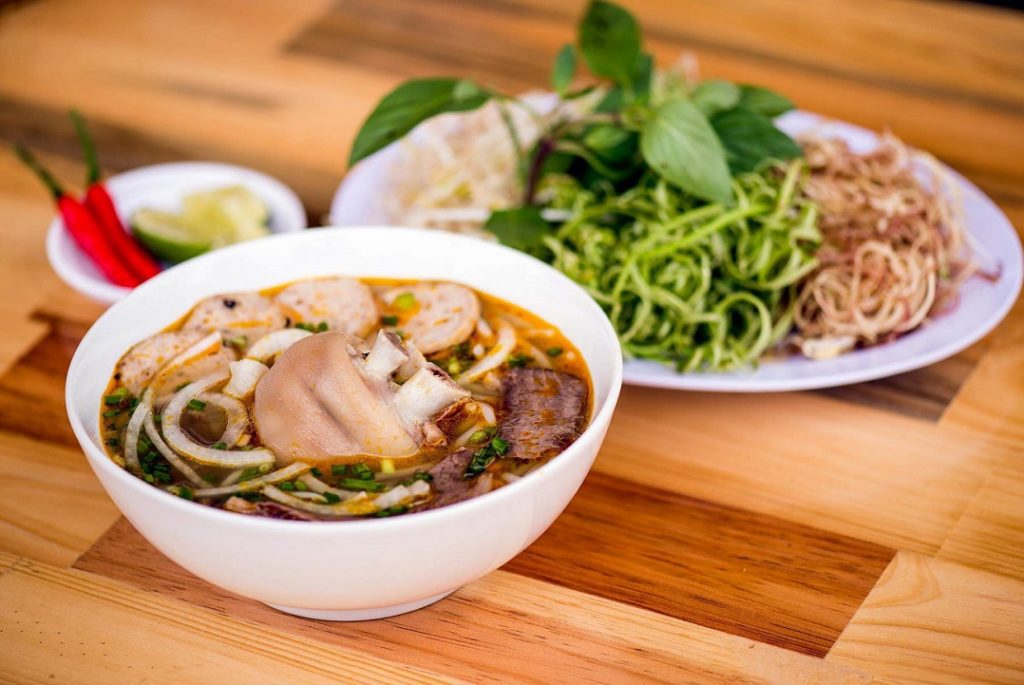
Banh mi nuong muoi ot (toasted Vietnamese baguette with hot chili salt) is a popular street food in Bao Loc Town. The bread is covered with a layer of honey and then grilled over the charcoal, with a little salt and chili added.
This dish can be found at Bao Loc Square at a restaurant at 107 Nguyen Cong Tru Street.
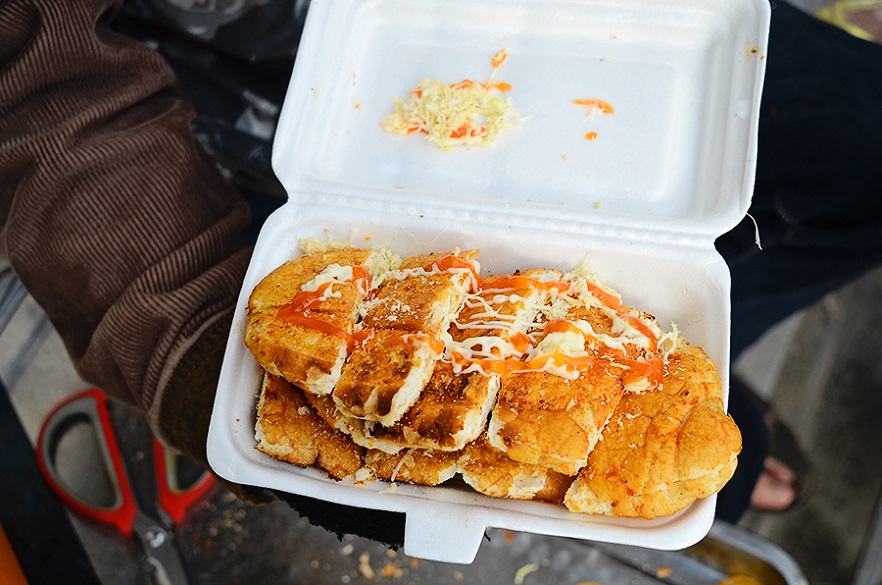
Chuoi nep nuong (grilled banana wrapped in sticky rice) is also a must-try dish in Bao Loc Town. The banana used for this dessert is a short, chubby type found in southern Vietnam and across Southeast Asia. It has an intense sweetness and a smooth texture.
The ripe banana is peeled before it is covered with sticky rice steamed with coconut juice. The cakes are then wrapped inside a green banana leaf before they are grilled over hot coal.
The dish can be found at a stall at 387 Nguyen Van Cu Street.
In the evening, you can visit street-side stalls along Bao Loc’s Central Square to enjoy grilled seafood such as shrimp, squid, octopus, pork and chicken.
Source: vnexpress.net
You might also like :










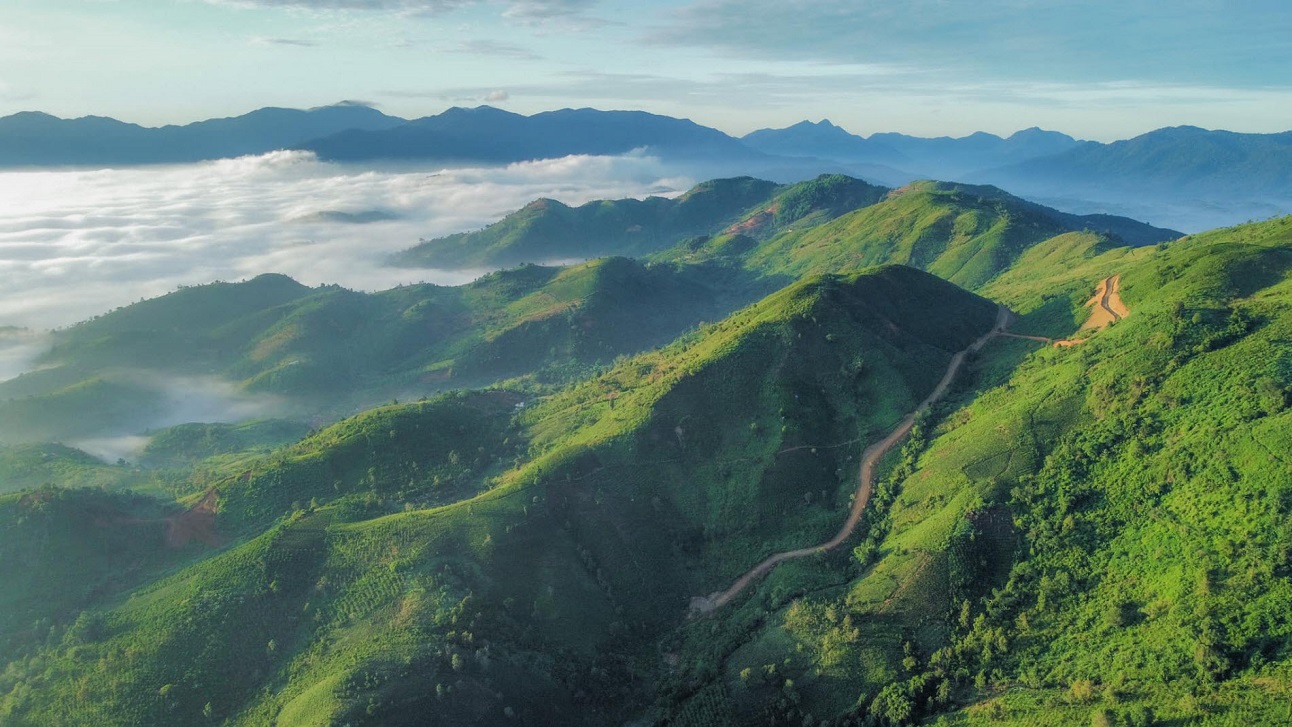





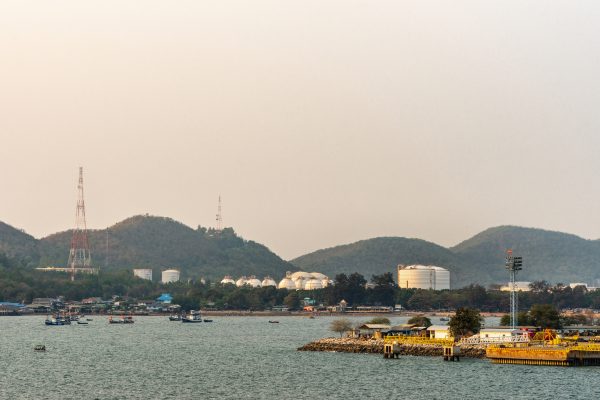




Discussion about this post